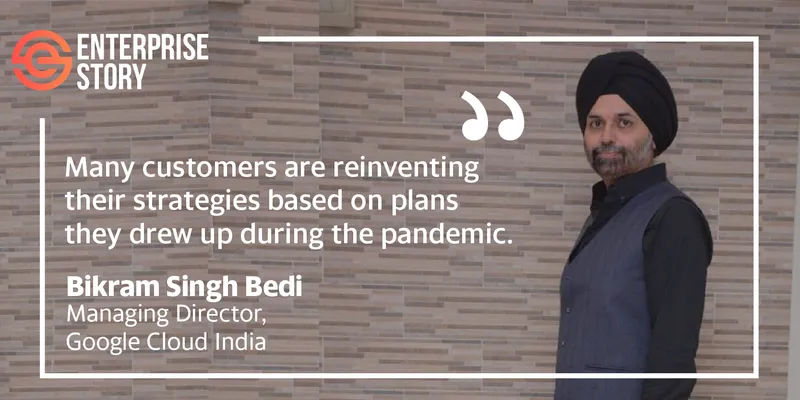Google Cloud launches second data centre region in India
Google Cloud now has a data centre region in Delhi-NCR and in Mumbai, with three availability zones each.
Google Cloud unveiled its second data centre cluster for India in Delhi-National Capital Region. "We are expanding our local infrastructure in response to customer demand since we opened our Mumbai cloud region in 2017," said Thomas Kurian, CEO of Google Cloud, in a recorded webcast on Thursday.
"Our second data centre in India gives more choice for customers to store their data locally to meet emerging data sovereignty requirements," he added, referring to industries like financial services, healthcare, and public sector.
Bikram Singh Bedi, Managing Director of Google Cloud India, said that the pandemic has disrupted lives, livelihoods and organisations. "Companies are navigating the crisis by building resilient and digitally-enabled business models."

"Each cloud region in India will have three availability zones," said Mitesh Agarwal, Director - Customer Engineering, Google Cloud India, adding that the distinct locations between the two cloud regions will help enterprises meet their business recovery and continuity, low-latency, and data residency requirements.
"If you are from a regulated industry, we have taken care of the stringent requirements of availability, business continuity, performance, and scale," Agarwal added. Enterprises in the banking, financial services and insurance industries have to comply with myriad security policy and standards around data residency, identity, and access control, apart from the regulatory obligations for risk management.
The cloud battle intensifies
Microsoft's cloud business Azure, and Amazon's AWS compete with Google Cloud. While Microsoft has three data centres in India (Pune, Chennai and Mumbai), AWS launched a data centre in Mumbai in June 2016. AWS' second data centre will come up in Hyderabad next year.
Google Cloud clocked global revenue of $13.1 billion in 2020, growing 47 percent over the previous year. It provides infrastructure and data analytics platforms, collaboration tools, and other services for enterprise customers. Its revenues are primarily from Google Cloud Platform services, and Google Workspace (formerly known as G Suite) collaboration tools.
While the cloud industry has been a two-horse race between AWS and Azure—both have an annualised revenue run rate of more than $50 billion—Google is upping the ante on the hiring front. In India, for instance, Bedi was formerly the CEO of AWS India. Google Cloud will continue to be aggressive in hiring sales and technical talent across geographies.
"Early customers are in the shift," Sundar Pichai, CEO of Alphabet (Google Cloud's parent company) told analysts during an earnings call in February 2021. The company is offering its capability to be "multi-cloud" as a differentiator for large enterprises. "Our technology for computation can be deployed on top of other clouds," Kurian reiterated in his recorded webcast on Thursday.
Furthermore, in India, Google Cloud is positioning its multi-region presence to attract enterprises in regulated industries that want disaster recovery solutions. Agarwal said the cloud regions are in two different seismic zones. "Customers will have the ability to establish private connections via Interconnect to utilise the Delhi NCR region with existing partners," the company said in a press statement.
Edited by Rajiv Bhuva






